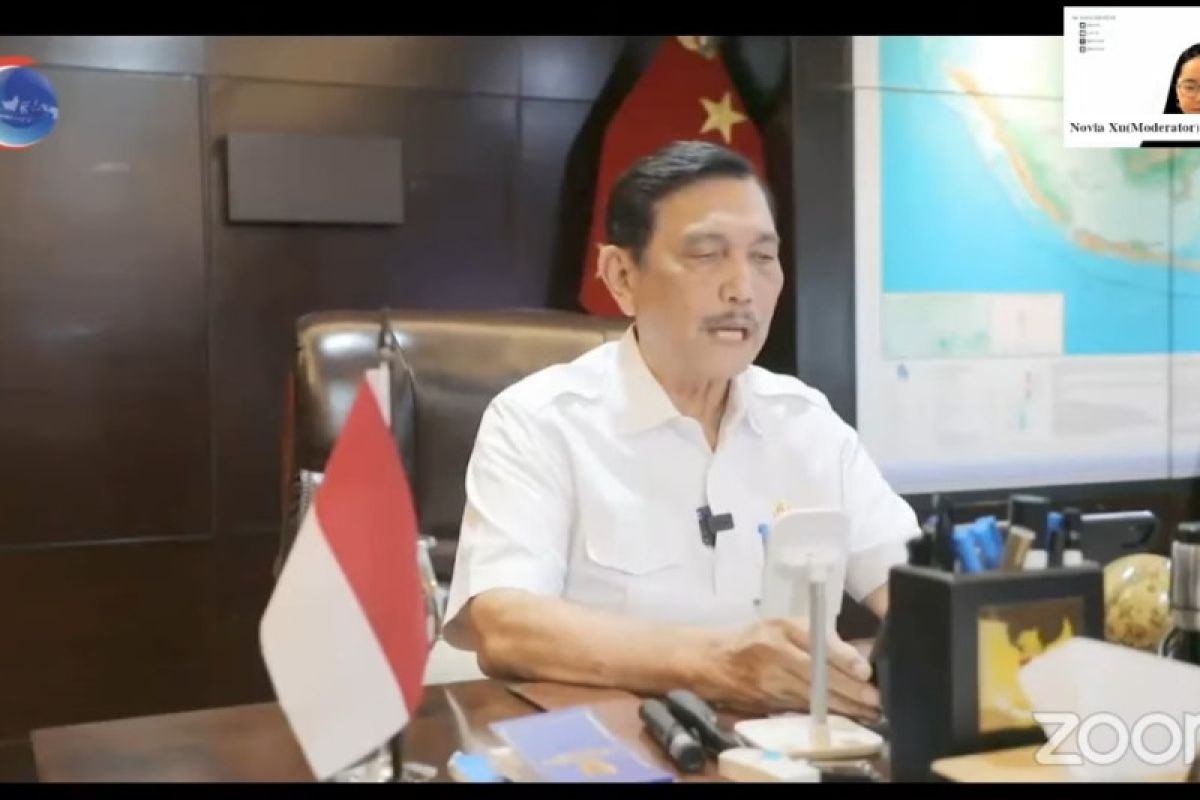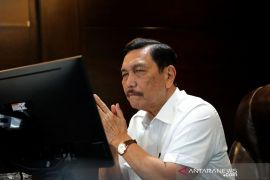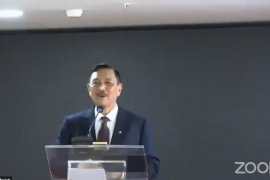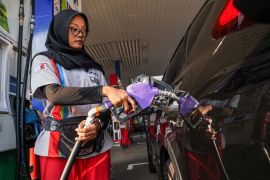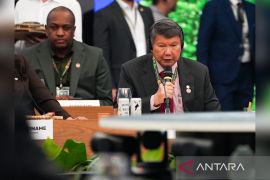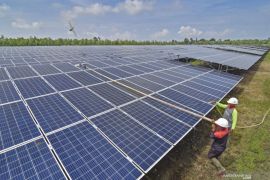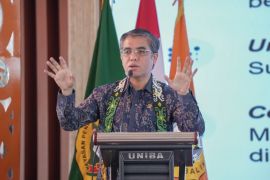Thus, I reemphasize that whatever we do (to achieve the emission reduction targets), we must not disrupt our future economic growth.Jakarta (ANTARA) - The Indonesian Government is focusing on developing a green economy in order to not repeat the mistakes of developed countries, which encouraged economic development with little regard for the environment and caused the climate crisis.
Coordinating Minister for Maritime Affairs and Investment Luhut Binsar Pandjaitan said on Monday that the government is committed to accelerating the low carbon economy transformation through decarbonization and energy transition.
"Indonesia will focus on avoiding the mistakes of developed countries in their previous growth strategies, which were not based on low carbon (development), thus causing the climate crisis," he observed during a webinar entitled “Global Recession Threats: Green Economy Transition at a Crossroad."
Hence, Indonesia is also actively promoting the concept of common but differentiated responsibilities (CBDR) to tackle the global climate crisis, he said.
According to data, Indonesia's CO2 emission level stands at 2.3 tons per capita, still far below the global average of 4.5 tons per capita, the coordinating minister noted. The figure is also significantly below the emissions level in developed countries, such as the United States, which is pegged at 14.7 tons per capita.
"It means that there is a need for proportional global emission reduction initiatives where developed countries must bear a much greater responsibility in contributing to mitigating the climate crisis we are facing," he said.
Indonesia announced more ambitious emissions reduction targets in its Enhanced Nationally Determined Contributions (NDC) document, which was submitted to the secretariat of the United Nations Framework Convention on Climate Change (UNFCCC) on September 23, 2022.
As per the document, the country has increased its emission reduction targets from 29 percent to 31.89 percent through its own efforts, and from 41 percent to 43.20 percent through international support.
Pandjaitan assured that although the targets have been increased, all attempts and strategies to achieve them would not interfere with Indonesia’s economic development.
"It is very important. Thus, I re-emphasize that whatever we do (to achieve the emission reduction targets), we must not disrupt our future economic growth," he stressed.
There are a number of efforts that are being and will be carried out by Indonesia, namely the electrification of the industry and economic activities, including the use of electric vehicles (EVs) as official government vehicles, he said.
In addition, the government is also focusing on attracting more investment in the green industry and value chain.
The government is also exploring strategies to maximize the economic value of carbon through the development and implementation of the carbon market and carbon tax, which can reduce emissions and optimize the potential of the blue carbon economy.
"A balance between economic growth and the energy transition is required. For example, the development of Kaltara (North Kalimantan province) Industrial Estate will use renewable energy of hydropower as the backbone of the industrial estate’s energy supply," the coordinating minister added.
Related news: Green economy can help solve social, demographic challenges: BRIN
Related news: Indonesia, Singapore agree to explore green economy cooperation
Translator: Ade Junida, Uyu Liman
Editor: Rahmad Nasution
Copyright © ANTARA 2022
